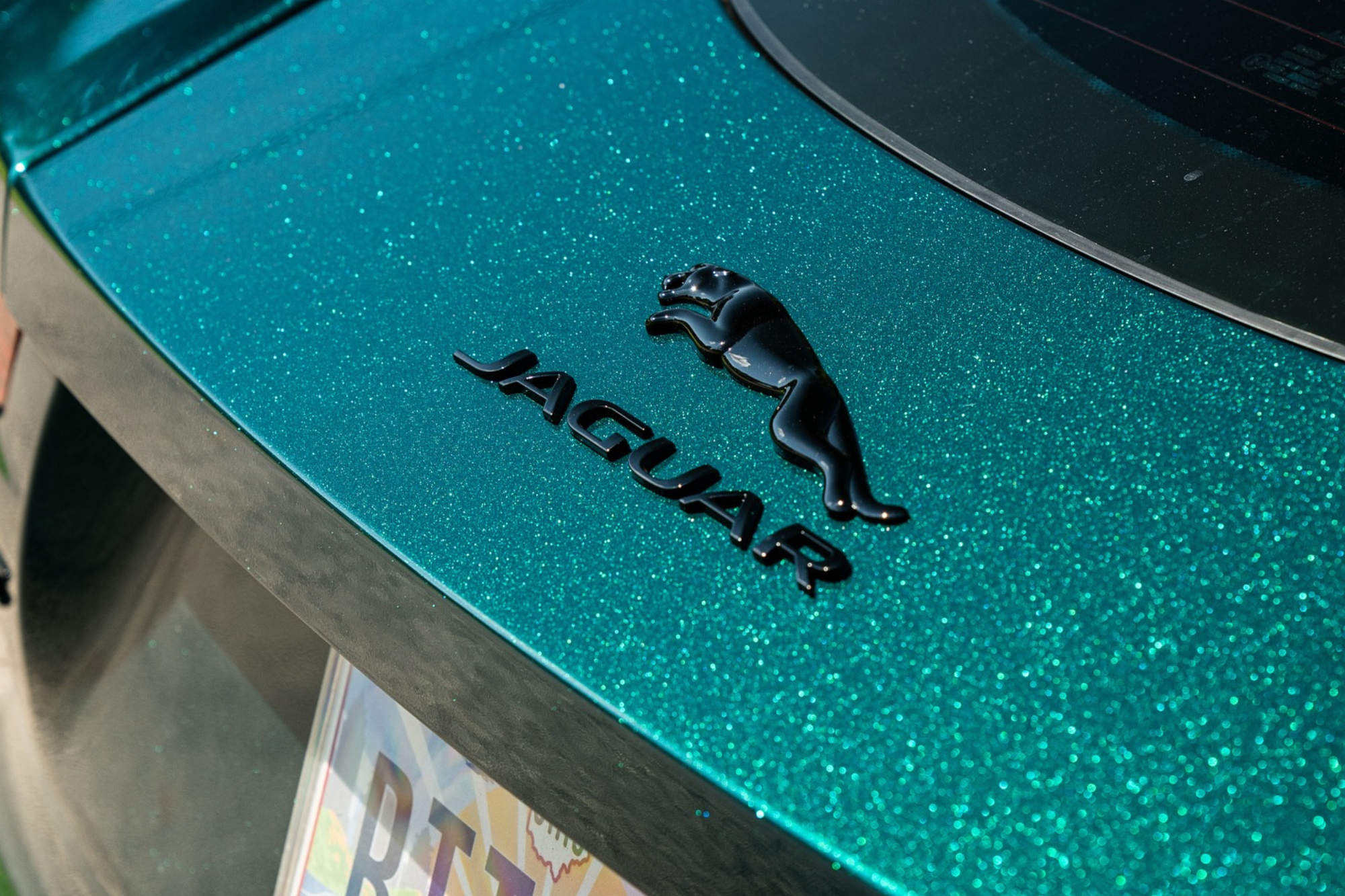When it comes to vehicle protection and customization, two major options come to mind: vinyl wraps and automotive paint. Both offer unique benefits, but they also come with their own sets of considerations, especially in terms of durability, maintenance, and cost. If you’re a Cleveland vehicle owner searching for the best way to protect your car, you’ve probably come across terms like vinyl for cars near me or Cleveland vinyl car wrap. But how do you determine which option offers the best long-term value for your vehicle?
At Ceramic Pro Cleveland, we provide specialized services to enhance the protection and appearance of your vehicle. Whether you’re considering a vinyl wrap service in Cleveland or investing in a durable paint job, understanding the differences in longevity and maintenance will help guide your decision.
Let’s explore the longevity of both vinyl wraps and automotive paint, how environmental factors influence their durability, and the key differences that can help you decide which option is best for your needs.
Key Takeaways
- High-quality automotive paint can last 5 to 10 years or more with proper care, especially when treated with a clear coat.
- Vinyl wraps typically last 5 to 7 years, especially in harsh environmental conditions.
- UV rays, salt, and extreme temperature changes reduce the lifespan of both finishes.
- Automotive paint benefits from strong UV and chemical resistance, while vinyl requires non-abrasive cleaning.
- Vinyl wraps offer a lower initial cost but may need to be replaced sooner than paint.
Maintenance and care routines can significantly impact the longevity of both finishes.
Understanding Vinyl Wrap Durability
Vinyl wraps are a popular choice for vehicle customization, and many car owners search for “vinyl for cars near me” when looking for this option. Vinyl wraps are an excellent way to change your vehicle’s appearance without making a permanent commitment. They are versatile, cost-effective, and protect your car’s original paint.
However, vinyl wraps are not without limitations. The quality of the vinyl material plays a critical role in how long the wrap will last. High-end brands like 3M and Avery Dennison are renowned for their durability, which can withstand the elements for 5 to 7 years with proper care. In contrast, cheaper, lower-quality vinyl can deteriorate much faster, particularly in harsh environments.
One of the most significant factors influencing the durability of vinyl wraps is the quality of installation. A professional installation minimizes the risk of bubbling, peeling, or premature wear. Our team at Ceramic Pro Cleveland ensures every wrap is expertly applied to guarantee long-lasting results.
In terms of maintenance, vinyl wraps require a specific care regimen to maximize their lifespan. Regular cleaning with non-abrasive, pH-neutral products is essential, as harsh chemicals can damage the wrap’s surface. Avoid automatic car washes with stiff brushes, as these can scratch the wrap. Parking in shaded areas or using a car cover can help reduce UV exposure and prevent fading or brittleness.
Environmental factors also impact the durability of vinyl wraps. Exposure to extreme temperatures, road salt, or chemicals can accelerate the aging process. Vinyl is sensitive to heat, which can cause it to bubble or peel if not properly cared for. If you live in a climate with harsh winters or frequent exposure to sunlight, these factors can further reduce the lifespan of your wrap.
Evaluating Paint Longevity
While vinyl wraps provide great flexibility and protection, automotive paint remains the classic choice for long-term durability. A well-applied, factory-quality paint job can last anywhere from 5 to 10 years or more, provided it’s maintained properly. At Ceramic Pro Cleveland, we recommend high-quality paint systems with clear coats that offer excellent protection against the elements.
The type of paint used is critical to its longevity. Multi-stage paint systems with a clear coat offer enhanced protection against UV rays, contaminants, and physical damage. Clear coats, in particular, enhance the paint’s resistance to fading and oxidation. On the other hand, single-stage paint systems may not offer as much protection, and their durability may be compromised over time.
Maintenance is crucial for automotive paint. Frequent washing, waxing, and polishing help preserve the paint’s protective layer and prevent degradation from environmental contaminants, such as bird droppings, tree sap, and acid rain. Regularly waxing the paint creates a barrier that shields it from pollutants and extends the finish’s lifespan.
One advantage of automotive paint is that it offers better scratch resistance compared to vinyl. While vinyl wraps can be damaged by sharp objects, automotive paint, especially when combined with a Ceramic Pro coating, is more resilient to minor scratches and wear.
However, once paint becomes damaged, repairs can be more challenging and costly. Unlike vinyl wraps, which can be patched or replaced in sections, automotive paint may require full panel resprays, blending, or touch-ups to maintain consistency.
Environmental Impact on Lifespan
UV rays are a primary contributor to the degradation of both vinyl wraps and automotive paint. Long-term exposure to direct sunlight can cause both finishes to fade, degrade, and lose their protective qualities. Temperature extremes also significantly reduce the lifespan of these finishes. Vinyl wraps are particularly sensitive to heat and may develop bubbles or peel when exposed to high temperatures for extended periods. Paint, on the other hand, can suffer from cracking or fading when subjected to frequent temperature fluctuations.
Salt and other chemicals used on roads during winter can damage both vinyl wraps and paint. Salt can corrode the metal beneath the paint, causing rust and deterioration. While vinyl wraps provide a protective barrier, prolonged exposure to road salt can cause the edges of the wrap to lift or peel. Acid rain and environmental pollutants also pose risks to both finishes.
At Ceramic Pro Cleveland, we understand how Cleveland’s unpredictable weather conditions can affect your vehicle’s exterior. We offer Ceramic Pro coatings that provide an additional layer of protection, extending the lifespan of both vinyl wraps and automotive paint.
Maintenance and Care Tips
Maintaining the aesthetic appeal and durability of your vehicle’s finish is essential for maximizing its lifespan. Both vinyl wraps and automotive paint require regular maintenance, but the care methods differ slightly.
For Vinyl Wraps:
- Wash your car by hand using a microfiber cloth and a pH-neutral soap.
- Avoid using abrasive materials, which can damage the wrap’s surface.
- Use a non-abrasive vinyl-safe detailing spray for added protection.
- Store your car in shaded or covered areas to reduce UV exposure.
For Automotive Paint:
- Wash your car with mild soap and a soft cloth to avoid scratching the paint.
- Apply wax every few months to maintain the clear coat’s protective layer.
- Remove contaminants such as bird droppings or tree sap promptly.
- Consider using a ceramic coating to protect your paint from the elements.
Both finishes benefit from prompt removal of contaminants. Leaving tree sap, bird droppings, or road tar on the surface can cause stains or long-term damage. Regular care ensures that your vehicle looks great for years to come.
Cost vs. Longevity Analysis
The decision to choose between vinyl wraps and automotive paint often comes down to cost and long-term investment.
Vinyl Wraps:
- Lower upfront cost than paint.
- Offers flexibility in design, making it an excellent choice for short-term customization.
- Typically needs replacement every 5 to 7 years.
- Easier to remove or update, especially if you want to change the vehicle’s look.
Automotive Paint:
- Higher initial investment, particularly for premium paint jobs or custom designs.
- Lasts longer, 5 to 10 years or more, with regular maintenance.
- It can add significant resale value to your vehicle.
- Repairs are more expensive and challenging compared to vinyl wraps.
In terms of cost versus longevity, vinyl wraps may be appealing if you want a quick transformation without committing to long-term protection. However, automotive paint can offer a more permanent solution, with the potential for better value over time if maintained properly.
Making the Right Choice
Choosing between vinyl wrap service Cleveland and automotive paint comes down to your priorities. If you’re looking for flexibility, short-term aesthetic changes, and lower initial cost, vinyl wraps are the right choice. On the other hand, if you want a durable, long-lasting finish that can add to your vehicle’s resale value, automotive paint is the way to go.
Vinyl wraps are ideal for those who enjoy changing their vehicle’s look or want to protect their factory paint temporarily. Automotive paint is the right choice for individuals seeking a more permanent, long-term investment in their vehicle’s appearance and protection.
In Summary
Whether you opt for a vinyl wrap service in Cleveland or a high-quality paint job, both options have their advantages. Vinyl wraps offer flexibility and a more affordable upfront cost, while automotive paint provides durability, protection, and long-term value. Consider your vehicle’s needs, environmental factors, and the length of time you plan to keep your car.
For professional vinyl wrap services in Cleveland, trust Mr. Detail – Ceramic Pro Cleveland. Our expert team is here to guide you in making the best decision for your vehicle and ensure it receives the best possible protection.

